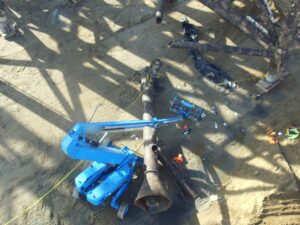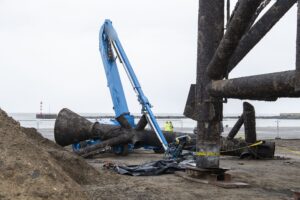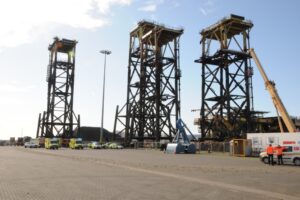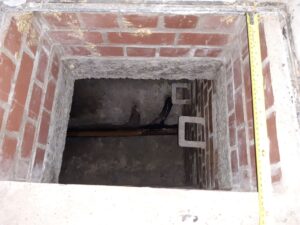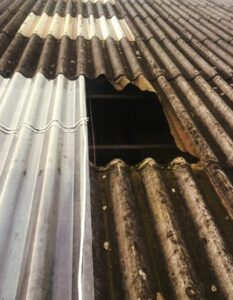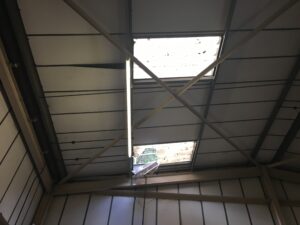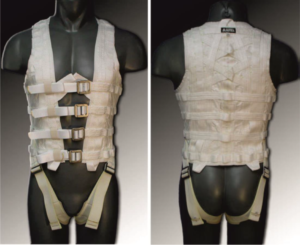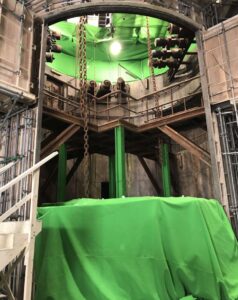Companies fined after dad crushed to death by machine
Two companies have been fined after a father-of-three was crushed to death by a machine.
The Health and Safety Executive (HSE) investigation found the incident was entirely avoidable and Russell Hartley would still be alive had this work been planned, managed and monitored to a sufficient standard.
Mr Hartley, was a self-employed engineer from Sheffield who had been hired by Premier Engineering Projects Ltd to replace machinery at a materials recycling facility on Twelvetrees Crescent, Bow, London.
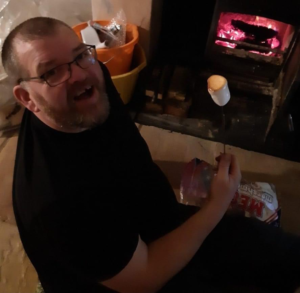
The 48-year-old led a group of four engineers tasked with replacing a Trisomat screen, known colloquially as a ‘flip-flop’, on 24 February 2020, when the incident occurred.
The flip-flop, a machine that sorts different sizes of waste, was fixed within a metal structure at height in a bay at the site.
The crane, supplied by M&M Mobile Crane Hire Ltd, was first used to lower the flip-flop from its position at the site.
Mr Hartley, who also had three grandchildren, then took over using a telehandler. With the flip-flop resting on the telehandler’s forks, the machine began to go further down the bay.
The flip-flop became jammed in the bay when Mr Hartley attempted to reverse the telehandler.
The crane was then used again to lift the flip-flop off the telehandler, which unknown to the workers, had its forks slightly raised above ground level.
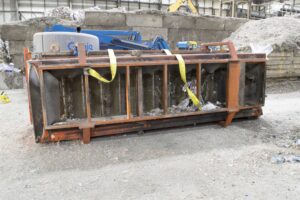
As the crane moved towards the telehandler, the flip-flop toppled forwards off the forks and crushed Mr Hartley. Another worker, who was standing on the flip-flop at the time, was thrown off the machine but escaped serious injury.
The HSE investigation found that two contractors, Premier Engineering Projects Ltd and M&M Mobile Crane Hire Ltd, failed to ensure the safety of those involved in carrying out the replacement of the Trisomat screen. The work being undertaken was not properly planned, supervised or carried out safely, and the assessment of the risks arising from the work was both unsuitable and insufficient. Mr Hartley was working with nine other engineers, also hired by Premier Engineering Projects, as well as three workers from M&M Mobile Crane Hire Ltd at the site.
Mr Hartley’s wife, Debbie, said in her victim personal statement: “Russell was everything to us. He was funny and one of the nicest guys you could ever meet. Nothing was ever too much. If it needed doing, he got it done. He was a fantastic father and husband. He worshipped his grandkids and all his family.
“I feel like sometimes I am just waiting for him to come home. I can’t accept that he has gone as I couldn’t say goodbye. Nothing prepared me for that moment. I thought he would be here and live on forever.
“All he ever wanted was to keep his family happy and looked after and I will try to keep that dream alive.”
Premier Engineering Projects Ltd, of Industry Road, Carlton, Barnsley, South Yorkshire, pleaded guilty to breaching Section 3(1) of the Health and Safety at Work etc. Act 1974. The company was fined £28,000 and ordered to pay £9,277.48 in costs at the Old Bailey on 1 August 2024.
M&M Mobile Crane Hire Ltd, of David Road, Colnbrook, Slough, pleaded guilty to breaching Section 3(1) of the Health and Safety at Work etc. Act 1974. The company was fined £48,000 and ordered to pay £9,500 in costs at the Old Bailey on 1 August 2024.
HSE inspector Mark Slater, who investigated this incident alongside HSE inspector David Beaton, said: “Had this work been planned, managed and monitored to a sufficient standard, this incident was entirely avoidable and Mr Hartley’s family would still have him in their lives. Risks arising from the lifting and moving of equipment of this size and nature are entirely foreseeable, and work of this nature should be afforded the utmost respect and care.”
This prosecution was brought by HSE enforcement lawyer Kate Harney, who was supported by HSE enforcement lawyer James Towey and HSE paralegal officer David Shore.
Notes to editors:
- The Health and Safety Executive (HSE) is Britain’s national regulator for workplace health and safety. We are dedicated to protecting people and places, and helping everyone lead safer and healthier lives.
- More information about the legislation referred to in this case is available.
- Further details on the latest HSE news releases is available.
- HSE does not pass sentences, set guidelines or collect any fines imposed. Relevant sentencing guidelines must be followed unless the court is satisfied that it would be contrary to the interests of justice to do so. The sentencing guidelines for health and safety offences can be found here.
